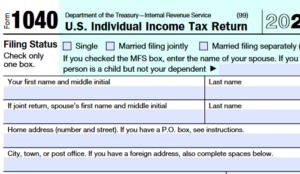Lie to Get Elected? Still Possible!
Some politicians lie. Surprise! They exaggerate their political accomplishments and they lie about what they intend to do for you if elected. They lie about their resume. Competition is fierce for most political offices. A candidate grabs onto every possible advantage. That’s true of candidates running for Congress today. It will be true of candidates running for Congress after the American people ratify the Representation Amendment.
Republican George Santos admitted to lying about his past during his successful race for a House of Representatives seat from New York. His presence in the House angers Democrats who feel cheated by his deception and embarrasses Republicans who want nothing to do with him. However, the Republicans hold a slim majority in Congress and every seat counts, even his. So, they find themselves between a rock and a hard place politically.
The extreme case of Rep. Santos presents you with an interesting specimen for comparing and contrasting the Legacy Congress and the Representation Congress. If people running for Congress today mislead the voters to this degree, how much would change following ratification of the Representation Amendment?
Your Reputation Precedes You
First, Rep. Santos apparently fabricated his past or mislead people with his words. He got elected before the news of his deceptions spread through his district. Would ratifying the Representation Amendment have prevented this? No. And yes.
No, the Representation Amendment would not have directly prevented any candidate from lying to the extent people have accused Rep. Santos of doing.
People are free to say just about anything they want when campaigning for office. The candidate risks being sued for libel or slander if they falsely accuse competitors, but the other candidates are public figures and their recourse is limited. What is not really limited is a candidate’s ability to inflate their resume.
The media seems to have fallen down on the job in vetting Rep. Santos. If anybody was sounding the warning, not enough voters heard and his Democrat challenger didn’t make it well known.
Yes, the Representation Amendment makes it easier to detect liars. A modern House district encompasses about 700,000 people. How many people in a district that size personally know the candidate? By contrast, the Representation House is limited to 30,000 people. In a district that size, a person has a reputation. Friends and family, neighbors and coworkers, and business associates all know something about you.
If you move your residence into a district and immediately run for office, you have an uphill battle if your competitors have resided in that district for a long time. The people know them and don’t know you. If the voters in this case elect a liar, they elected a known liar!
The takeaway here is that people are still allowed to run their Representation House campaigns in the same manner as they do in the Legacy House races, but smaller districts mean fakes will be more easily discovered.
Party Politics Make This Worse
Rep. Santos offers you a second opportunity to contrast the Legacy House and Representation House.
With two national parties perpetually battling for control of Congress, every piece of legislation becomes a binary choice on a spectrum of positions. You get the Democrat bill or the Republican bill in most circumstances. Whichever party controls the House generally gets their legislation passed.
Neither party willingly ejects a member, especially when the House is as narrowly divided as it is in 2023. The loss of a seat could result in the loss of control of a chamber of Congress for the majority party. Party members must choose between reducing their majority by expelling a member and keeping the majority with a member treated as a pariah.
If the roles were reversed, the Democrats would decline to expel Rep. Santos and the Republicans would bash Democrats for their refusal. Party politics.
But in the Representation House, odds are good that neither party gets a majority. With so many small House districts, many independent candidates will win seats. When neither party holds a majority in the House, the members should tend to act more independently. They’ll certainly vote collectively on some bills. There’s strength in numbers. But the party discipline that results in party-line votes on legislation will break down enough that bills will pass based upon the beliefs of the House member instead of the platform of the party.
In a House without a majority party, where the members vote more as individuals, the loss of a single member through expulsion is less damaging. Members of the party may defend the seat of the offender. But the number of members of the other party combined with the independent members is the majority.
Each case will be unique, but members of Congress have the means to expel one their own. In the Representation House, you may not have a party powerful enough to protect you.
You Aren't Significant Enough
A third difference between the Legacy House and the Representation House is the significance of any one member of the House. A member of the Legacy House is vastly more significant that a member of the Representation House.
In a House of Representatives consisting of a mere 435 members, every seat counts. Neither party can afford to lose a single seat because the passage of important legislation may come down to one vote.
For the majority party, having a wide margin of votes over the minority party provides a buffer in case some of your own vote against you. In the event of a controversial vote, leaders of the majority party allow some of their members to vote against unpopular legislation if their seat could be endangered by the affirmative vote. Having a couple spare seats to pad your majority can make a big difference in the next political skirmish.
Moreover, the expulsion of a federal legislative body consisting of a paltry 435 members is big news. The sordid affair sullies the reputation of the party of the member being kicked out. This gives the party a good reason to fight expulsion regardless of the reason.
But when you have one representative for every thirty thousand people, any one representative is nearly insignificant. In the Representation House, power comes from building a coalition of like-minded congresspeople. And that coalition is only good for that one piece of legislation, because the person voting with you this morning may vote against you this afternoon on a different piece of legislation.
Since any one representative is relatively insignificant, if one representative throws out a thousand lies during the campaign and wins an election, the potential damage that one representative can do is limited.
The point of the Representation Amendment is not to have a few powerful legislators that battle like towering gladiators while the tiny townspeople try to avoid being stomped on. The point is to have thousands of weak legislators that must join together to produce legislation acceptable to their combined constituents. This is where “power in numbers” translates into true representation.
In a House of Representatives with thousands of seats, some truly bad people will win elections to fill those seats. But most of the people who fill those seats will be honorable. Honorable people can disagree and fight for their beliefs. Honorable people will want to rid themselves of the bad apples. The few bad apples will be identified and isolated, and the business of the House will go on.
Voters in most House districts will vote out those people who don’t belong in elected office. If your delegate to the House of Representatives is being shunned, that person provides you little value as a representative. You’ll look for somebody with similar political views you believe will be accepted by other members of the House.
In particularly egregious cases, the members of the House will expel a member. Whereas today a political party will stand by a member for almost any infraction, and that member will almost certainly remain in the House, members of the Representation House will not have a political party powerful enough to save them.
Key Takeaways
Most candidates for office are exactly who they say they are. But some candidates for office might lie to you. They’ll try to make their failures appear fewer and their successes appear greater. The campaign is a job interview, after all.
You may wish for a system that forces candidates to tell the truth or mutes statements deemed untrue. But remember that a system that de facto replaces the voter as the final say on what is true becomes the decider on what the voter hears from all candidates. That is not representation. Politics is messy, even with the Representation Amendment. But at least with the Representation Amendment, you have a better chance to choose a candidate favorable to your beliefs and values.
With the sidelining of the major political parties and the expansion of the House, representatives will need to negotiate legislation on its merits and compromise to get a majority of votes. Without a majority party, you’ll likely see members cooperate on one piece of legislation even as they battle against each other on another bill. The dynamics will change. But the people will get the legislation favored by the majority of Americans, not the majority of party members.











